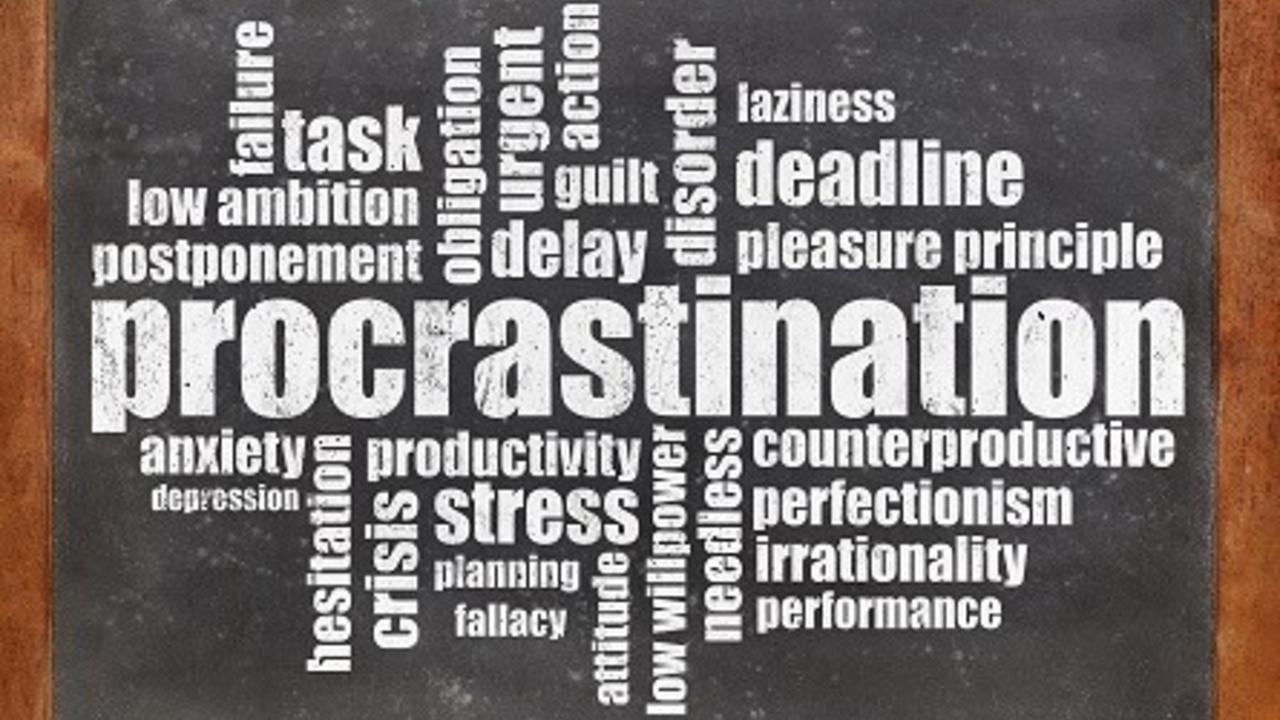Procrastination Is Hazardous to Your Health
Jul 27, 2016
It’s almost that time again… the start of the new school year!
Some students are eager to dig in and make the most of their educational opportunity, while others may be taking a somewhat more relaxed approach, like, “Why not put off today what I can do tomorrow?” After all, we’ve all heard the saying, “If it weren’t for the last minute, nothing would ever get done!” Doesn’t that mean it’s better to wait before tackling a project or assignment? No… and the reason is because your health and your success may suffer if you do. That’s what studies on the cost of procrastination reveal.
For example, a study that examined the tendency for some college students to procrastinate on assignments found that while procrastination provided some short-term benefits, like an initial period of lower stress, it had long-term costs – including poor health and lower grades.
Researchers studied 104 students by getting access to their course grades and the date that each student turned in term papers assigned the first day of class. They found that procrastinators received lower grades on their papers and on exams throughout the semester. When a student has to scramble and stay up all night to finish an assignment, they are clearly not working at optimum capacity, so important matters of content and quality may be sacrificed in their work. Besides, a teacher or professor who receives an assignment early or at least on time will naturally have a more favorable opinion of the student’s effort, which can have a subtle – or overt – effect on the grade. This impacts the student’s success in school and helps shape their attitudes about achieving success as adults.
With regard to the students’ health, the study showed that procrastinators appeared to start the semester with an advantage: low-stress levels. Considering that a lot of the work I do with counseling and coaching clients is focused on helping them lower their stress, it sounds like an advantage and I should be advising students to just “chill.” However, the students who had procrastinated experienced the consequences toward the end of the semester. They reported more health related symptoms – with much higher levels of stress and even more frequent trips to health care providers. The stress of facing looming deadlines, long hours of cramming and the worry about getting it all done literally made the procrastinating students sick.
Parents can be a significant influence in teaching children good habits in their earlier school years. I understand how hard it can be to create a structure of good study habits at home, but one of the greatest gifts we can give our children is helping them avoid the habit of procrastination. We need to show our kids the value of working on tasks such as homework and chores well before the deadline approaches. The headaches it may cause you now may literally help your child avoid their own headaches, colds, ulcers, depression and stress-related illnesses down the road!
Live, Work and Relate Well!
Dr. Todd
Learn How to Build Unshakeable Self-Confidence Using Scientifically Proven Methods in 30 Days!
Our Confidence in Mind online course unveils how to eliminate embarrassing self-doubt, paralyzing fear, and the crippling voice of the inner critic.
Sign-Up Today!
Stay connected with our newest Blog posts and updates!
Join our mailing list to receive the latest Relate Well Blog posts and updates from our team.
Don't worry, your information will not be shared.
We hate SPAM. We will never sell your information, for any reason.
